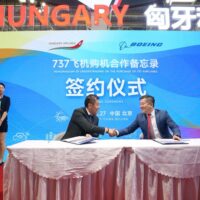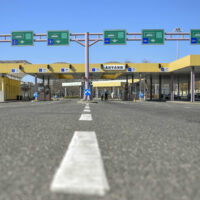ZeroAvia honored by Time Magazine for best invention in the experimental category
Sponsored content
ZeroAvia is a company based in the United Kingdom that specializes in creating decarbonized solutions for commercial airplanes. In November 2020, Time magazine informed ZeroAvia that it had included the company in its Best Invention of 2020 for the experimental category.
How Time Magazine Chose Its Honorees
Each year, the publication solicits nominations from correspondents and editors through a worldwide online application process. A select group of magazine employees reviews the applications and considers the ambition, effectiveness, impact, and originality of each. The award gave credit to the entire staff of ZeroAvia for its dedication and hard work in creating an alternative to airplanes powered by traditional fuel.
Jesse Will, a member of the Time staff responsible for selecting nominees from each category, discussed how passenger airlines emitted more than 915 tons of carbon dioxide into the atmosphere in 2019. Will described how ZeroAvia is substituting electric motors and hydrogen fuel cells for engines powered by traditional fossil fuels. Time staff were especially impressed by a flight performed by ZeroAvia last fall. A six-seat Piper M aircraft flew for several miles north of London on hydrogen-electric power.
Comments From the CEO of ZeroAvia
Val Miftakhov acknowledged the Best Invention of 2020 award from Time by stating how honored he felt on behalf of the entire organization. According to Miftakhov, this recent recognition underscores the importance of the work that ZeroAvia performs to progress toward the goal of zero-emission aviation.
ZeroAvia has many projects planned for 2021 that allow the company to move closer to the reality of flying planes that release no emissions. For example, ZeroAvia is currently working on its first flight powered by hydrogen-based fuel. Once the company has achieved that goal, it plans to execute technology with larger aircraft at longer ranges. ZeroAvia has an aggressive goal of flying commercial airline passengers within the next three years.
ZeroAvia is the first company in the world to develop practical powertrain technology powered by hydrogen fuel. This technology replaces conventional aircraft engines, resulting in the following benefits:
- Zero net emissions
- Reduced noise levels
- Substantially lower maintenance and fuel costs
- Significant reduction in total trip cost
When receiving recognition from Time several months ago, Miftakhov stated that the primary focus of his company is to introduce hydrogen aviation solutions to various markets. ZeroAvia intends to fly a 20-seat plane at least 500 nautical miles when it launches its first commercial flight powered by hydrogen fuel within the next three years.
ZeroAvia has set two other big goals over the next decade. Miftakhov shared in November 2020 that ZeroAvia intends to fly an 80-seat commercial plane 500 nautical miles by 2026 and a 100-seat plane 1,000 nautical miles by 2030.
About ZeroAvia
ZeroAvia is a world leader in creating new aviation solutions using hydrogen-electric fuel instead of traditional aircraft fuel that contributes significantly to the problem of pollution. The company points to statistics from 2016 that demonstrate that the transportation industry produces more carbon dioxide emissions in the United States than any other industry.
Worldwide, airline industry carbon emissions make up one-third of all emissions. The airline industry also contributes 12 percent of emissions made by all types of transportation, including personal vehicles. Before ZeroAvia took on the challenge of creating alternative fuels for airlines, the industry had no workable solution to address the growing crisis.
At its current pace of emissions, the airline industry would double the amount of carbon dioxide released into the atmosphere by 2050 without any type of intervention. Regulators are putting increasing pressure on airlines to solve this problem with a radical reduction timeline of a 10-fold decrease in emissions by 2050.
ZeroAvia faces these major challenges as it works toward an emission-free future for commercial airlines:
- Short-haul flights of less than 1,000 nautical miles contribute to half of all airline carbon dioxide emissions.
- Larger airports flying larger planes means higher security overhead, longer waits, and increased congestion.
- A higher concentration of passengers in major airport hubs means longer last-minute travel to final destinations. This situation also increases the transmission risk of airborne disease.
The solutions that ZeroAvia has put forth so far have resulted in launching flights up to 500 nautical miles at half the normal cost. Using hydrogen-electric fuel also results in a 75 percent reduction in maintenance and fuel costs.
The plan is to continue building partnerships with aviation organizations in the United Kingdom, the United States, and Norway to realize these goals sooner rather than later.
please make a donation here
Hot news
Orbán says Romania is a testing ground for social media platforms used in a campaign
Budapest’s Advent Bazilika Christmas market has been named the Best Christmas Market of All Time! – PHOTOS
Hungarian minister unhappy for research funding gap between EU member states
Shocking data: Hungary’s dairy farm industry dominated by Filipino, Indian, and Sikh guest workers
PM Orbán nominated new Hungarian National Bank governor, forint strengthening, government change comes
BREAKING: New Hungarian airline founded with Chinese help




